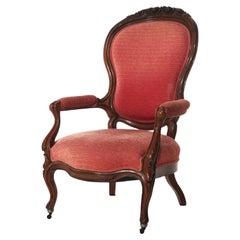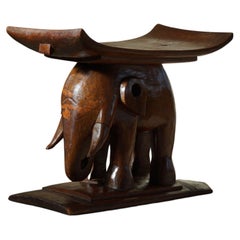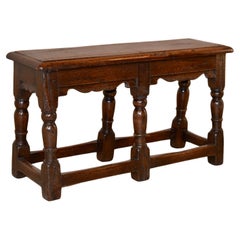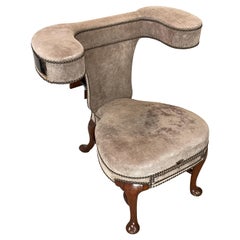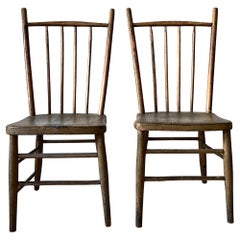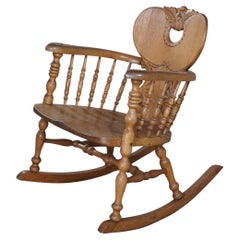Seating
Late 19th Century Victorian Antique Seating
Walnut, Upholstery
Mid-20th Century African Primitive Seating
Hardwood
19th Century English Victorian Antique Seating
Oak
1870s English Victorian Antique Seating
Leather, Mahogany, Walnut
Late 19th Century American Primitive Antique Seating
Hardwood
Late 19th Century Late Victorian Antique Seating
Oak
Late 19th Century English Victorian Antique Seating
Upholstery, Velvet, Walnut
Late 20th Century Swiss Primitive Seating
Wood, Hardwood
Late 19th Century Sri Lankan Victorian Antique Seating
Teak
1890s American Victorian Antique Seating
Wicker
1860s American Victorian Antique Seating
Walnut
1880s English Victorian Antique Seating
Ash, Elm
21st Century and Contemporary American Victorian Seating
Iron
Early 20th Century Unknown Victorian Seating
Cane, Oak
1840s British Victorian Antique Seating
Walnut
Mid-19th Century English High Victorian Antique Seating
Tapestry, Walnut
1840s British Early Victorian Antique Seating
Textile, Walnut
Mid-19th Century American Victorian Antique Seating
Metal
19th Century English Victorian Antique Seating
Walnut
Early 20th Century American Victorian Seating
Iron
1860s English High Victorian Antique Seating
Iron
21st Century and Contemporary French Primitive Seating
Hardwood
19th Century English Victorian Antique Seating
Mahogany
21st Century and Contemporary British Victorian Seating
Leather, Chestnut
Early 20th Century Unknown Victorian Seating
Rattan
Early 20th Century American Victorian Seating
Wicker
19th Century English Primitive Antique Seating
Elm
19th Century English Victorian Antique Seating
Oak
1880s American Victorian Antique Seating
Wicker
Late 19th Century British Victorian Antique Seating
Mahogany
19th Century English Early Victorian Antique Seating
Mahogany, Leather
19th Century English Victorian Antique Seating
Other
1920s British Victorian Vintage Seating
Rattan
Mid-19th Century Victorian Antique Seating
Upholstery, Walnut
Late 19th Century American High Victorian Antique Seating
Mohair, Walnut
Late 19th Century British Late Victorian Antique Seating
Brass
21st Century and Contemporary Asian Victorian Seating
Fabric, Rattan
Late 19th Century British Late Victorian Antique Seating
Wood
Late 19th Century British Victorian Antique Seating
Leather
19th Century Unknown Victorian Antique Seating
Oak
1930s Victorian Vintage Seating
Iron
Mid-20th Century Victorian Seating
Gold Leaf
Mid-19th Century British Victorian Antique Seating
Iron
1870s British Victorian Antique Seating
Hardwood
Early 20th Century Victorian Seating
Iron
Mid-20th Century Victorian Seating
Gold Leaf
1890s American Late Victorian Antique Seating
Wicker, Wood
Late 19th Century American Victorian Antique Seating
Rush, Walnut
Early 20th Century Victorian Seating
Upholstery, Wood
1860s Dutch Victorian Antique Seating
Satinwood
Early 1900s American Late Victorian Antique Seating
Wicker
19th Century English Victorian Antique Seating
Pine
Early 1900s Victorian Antique Seating
Wicker, Rattan, Bentwood
19th Century English Victorian Antique Seating
Oak
Mid-19th Century British Late Victorian Antique Seating
Abalone, Linen, Silk, Oak
20th Century Victorian Seating
Leather, Hardwood
1880s British Victorian Antique Seating
Textile, Oak
20th Century African Primitive Seating
Wood
Unique Chairs, Sofas and Other Seating for Sale on 1stDibs
With entire areas of our homes reserved for “sitting rooms,” the value of quality antique and vintage seating cannot be overstated.
Fortunately, the design of side chairs, armchairs and other lounge furniture — since what were, quite literally, the early perches of our ancestors — has evolved considerably.
Among the earliest standard seating furniture were stools. Egyptian stools, for example, designed for one person with no seat back, were x-shaped and typically folded to be tucked away. These rudimentary chairs informed the design of Greek and Roman stools, all of which were a long way from Sori Yanagi's Butterfly stool or Alvar Aalto's Stool 60. In the 18th century and earlier, seats with backs and armrests were largely reserved for high nobility.
The seating of today is more inclusive but the style and placement of chairs can still make a statement. Antique desk chairs and armchairs designed in the style of Louis XV, which eventually included painted furniture and were often made of rare woods, feature prominently curved legs as well as Chinese themes and varied ornaments. Much like the thrones of fairy tales and the regency, elegant lounges crafted in the Louis XV style convey wealth and prestige. In the kitchen, the dining chair placed at the head of the table is typically reserved for the head of the household or a revered guest.
Of course, with luxurious vintage or antique furnishings, every chair can seem like the best seat in the house. Whether your preference is stretching out on a plush sofa, such as the Serpentine, designed by Vladimir Kagan, or cozying up in a vintage wingback chair, there is likely to be a comfy classic or contemporary gem for you on 1stDibs.
With respect to the latest obsessions in design, cane seating has been cropping up everywhere, from sleek armchairs to lounge chairs, while bouclé fabric, a staple of modern furniture design, can be seen in mid-century modern, Scandinavian modern and Hollywood Regency furniture styles.
Admirers of the sophisticated craftsmanship and dark woods frequently associated with mid-century modern seating can find timeless furnishings in our expansive collection of lounge chairs, dining chairs and other items — whether they’re vintage editions or alluring official reproductions of iconic designs from the likes of Hans Wegner or from Charles and Ray Eames. Shop our inventory of Egg chairs, designed in 1958 by Arne Jacobsen, the Florence Knoll lounge chair and more.
No matter your style, the collection of unique chairs, sofas and other seating on 1stDibs is surely worthy of a standing ovation.
Read More
See How New York City Designers Experiment on Their Own Homes
There are many lessons to be learned from the lofts, apartments and townhouses of architects and decorators in Manhattan and beyond.
Canadian Designer Philip Mitchell Masterfully Balances Tradition and Glamour
Enriching rooms with layers of visual interest is key to the New York– and Toronto-based decorator’s signature style.
